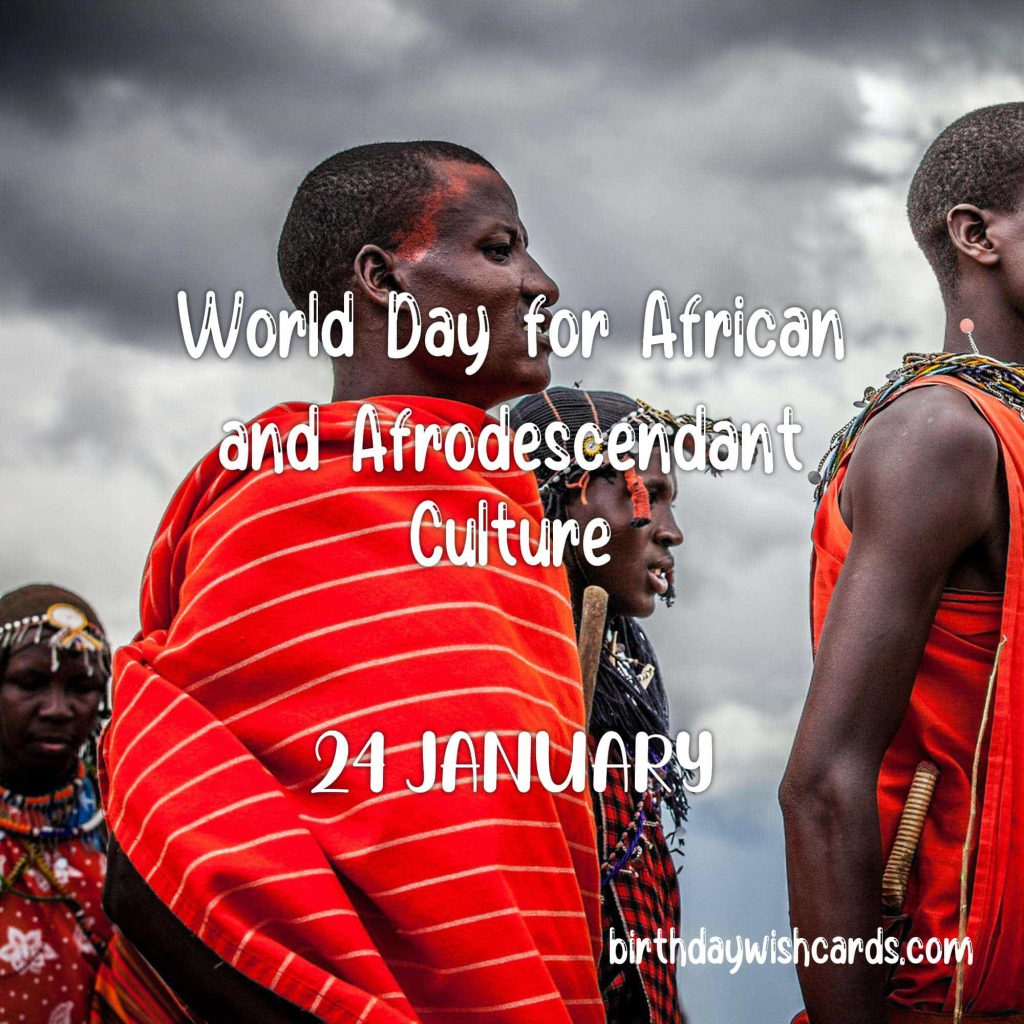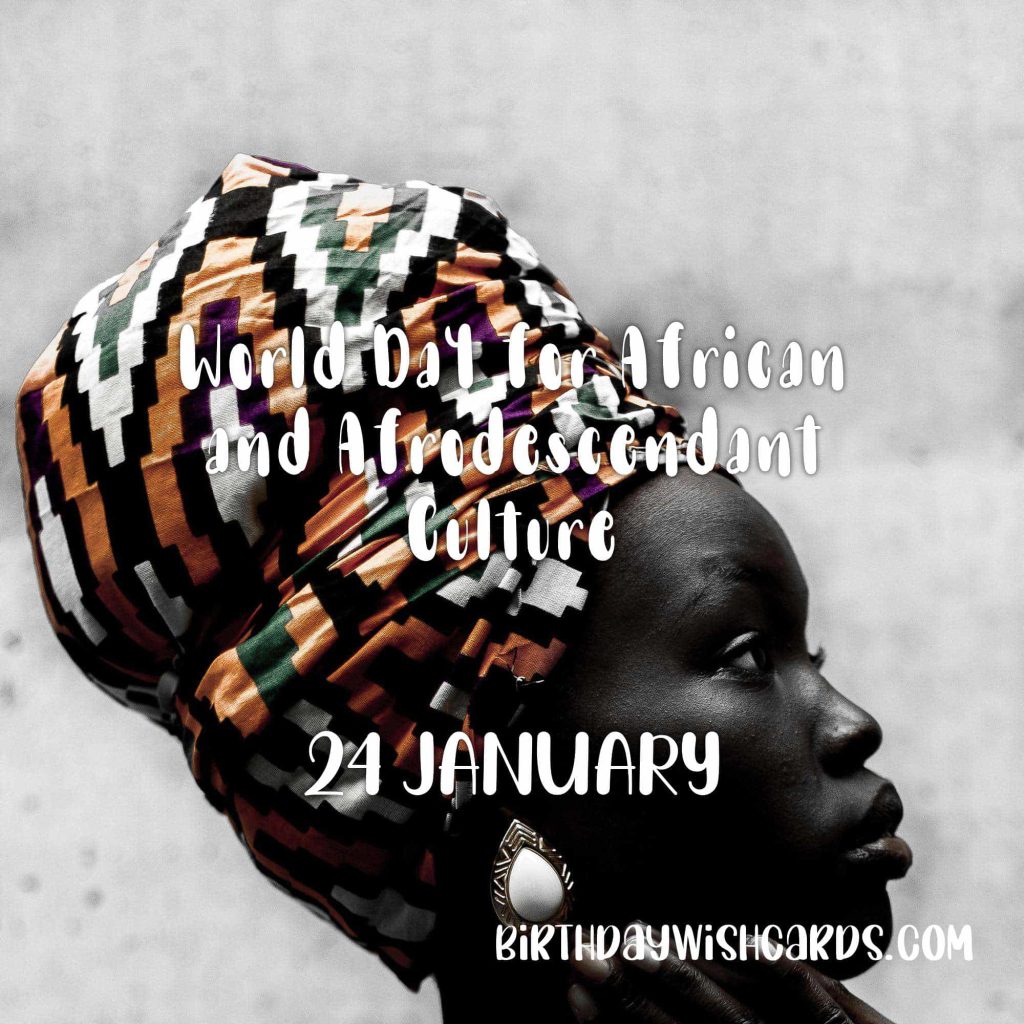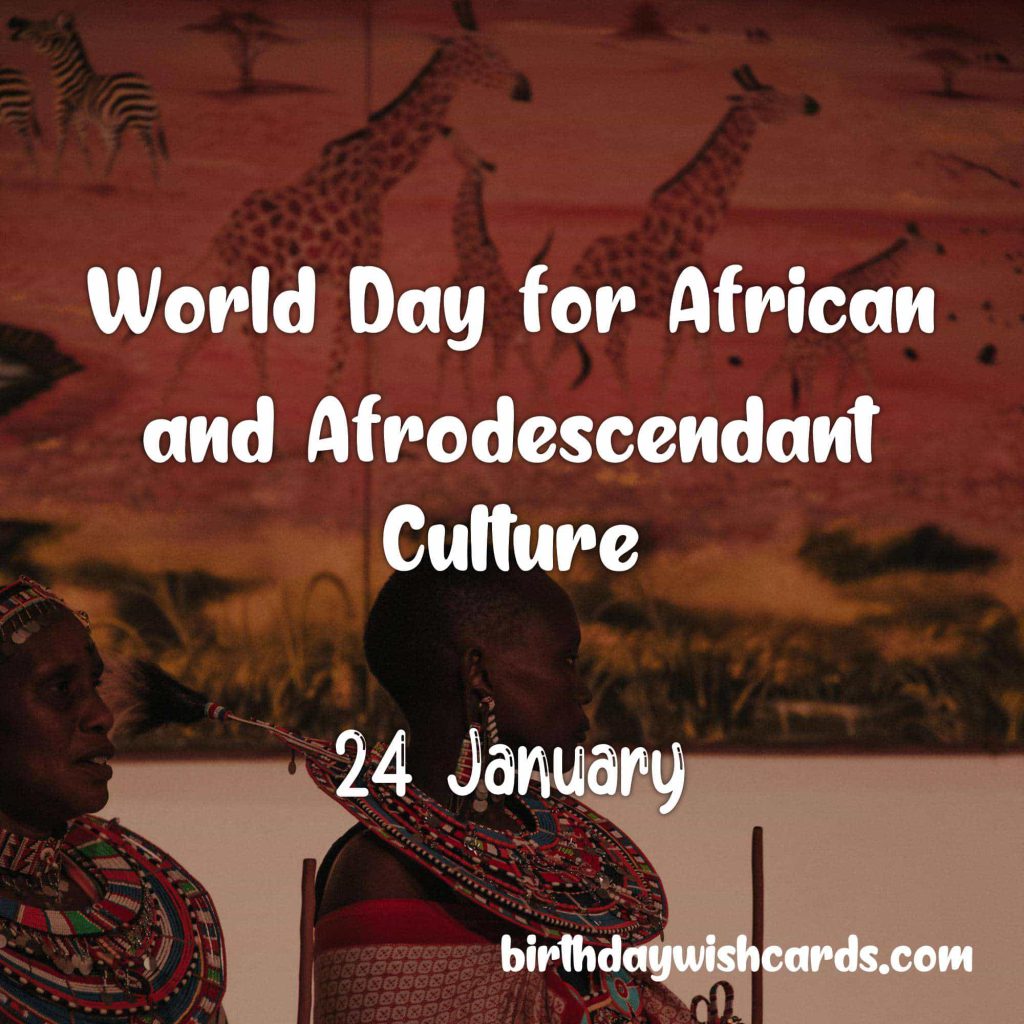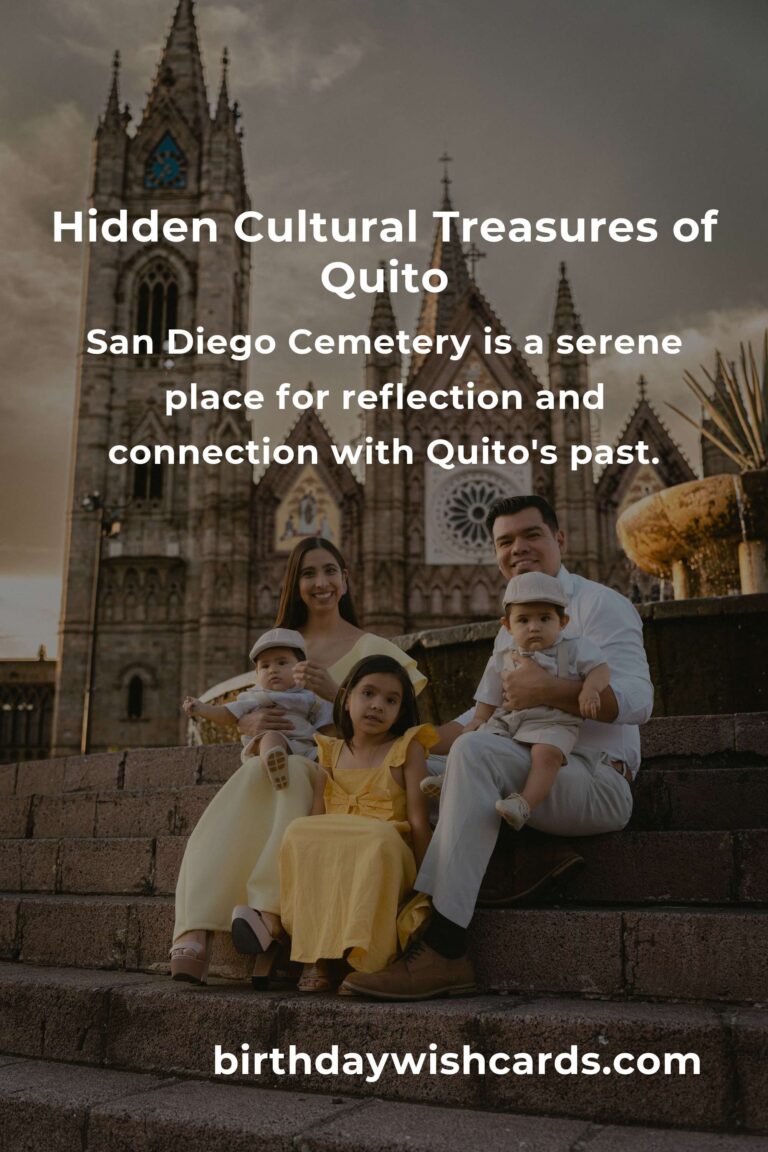
24 January: World Day for African and Afro-Descendant Culture
UNESCO General Conference and the Origin of the Day
On 24 January 2019, during its 40th session, the UNESCO General Conference officially proclaimed 24 January as the World Day for African and Afro-Descendant Culture. This date coincides with the anniversary of the adoption of the Charter for African Cultural Renaissance in 2006, a milestone led by the Heads of State and Government of the African Union.
The establishment of this day serves several key purposes: to promote the ratification and implementation of the Charter by African States, to strengthen cultural identity, and to highlight the vital role of African traditions in advancing peace and development across the continent.
The Significance and Objectives of the World Day for African and Afro-Descendant Culture
This global observance honors the rich and diverse cultural heritage of African peoples and their descendants worldwide. Its objectives are to:
- Celebrate the unique and vibrant cultures of Africa and the African diaspora.
- Encourage dialogue, unity, and reconciliation among communities through cultural expression.
- Promote African cultural industries as essential drivers of sustainable development.
- Highlight the importance of preserving intangible cultural heritage, including music, dance, oral traditions, and craftsmanship.
- Reinforce the role of culture in peacebuilding and social cohesion in Africa and beyond.
Theme of the Day: Celebrating African Culture for a Reconciled Humanity
In 2021, UNESCO adopted the theme “Celebrating African Culture for a Reconciled Humanity” to underscore the transformative power of culture in healing divisions and fostering global understanding.
This theme invites individuals and communities to reflect on how African cultures contribute to reconciliation, peace, and mutual respect among diverse populations. It highlights the shared humanity that culture nurtures, transcending borders and historical conflicts.
How to Participate in the World Day for African and Afro-Descendant Culture
UNESCO encourages everyone to take part in the World Day through a range of engaging activities, such as:
- Panel discussions and debates exploring cultural identity and heritage.
- Workshops featuring traditional African arts, crafts, and storytelling.
- Cultural performances showcasing music, dance, and theater from African and Afro-descendant communities.
- Exhibitions and displays of African artifacts, fashion, and visual arts.
- Community gatherings that foster intercultural dialogue and cooperation.
These activities offer opportunities to share knowledge, celebrate diversity, and inspire solidarity among people worldwide.
Message from UNESCO’s Director-General
Audrey Azoulay, Director-General of UNESCO, emphasized the significance of this day in her 2021 message:
“As we begin 2021, which African Heads of State have declared the Year of the Arts, Culture and Heritage, this World Day is therefore an opportunity to promote these African and Afro-descendant cultures in order to enable them to play their full part in development and peace.”
This statement reflects the shared commitment of African leaders and UNESCO to advancing cultural heritage as a cornerstone of the continent’s progress and harmony.
For the full message, visit the official UNESCO World Day for African and Afro-Descendant Culture page.
A Visual Celebration of African Culture
The vibrancy and diversity of African and Afro-descendant cultures are best appreciated through visual and artistic expression. Below is a selection of images that showcase the richness of African cultural heritage.







